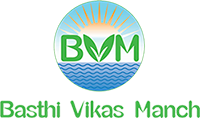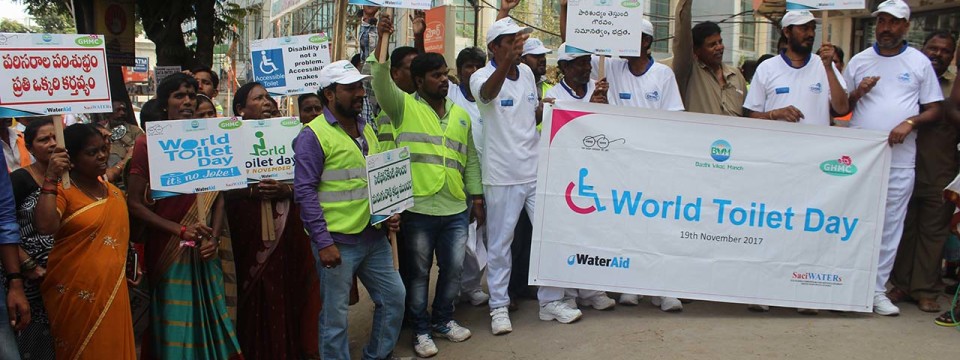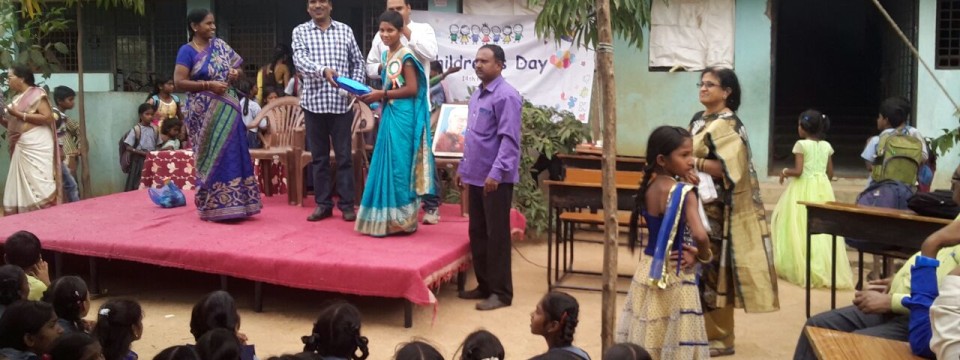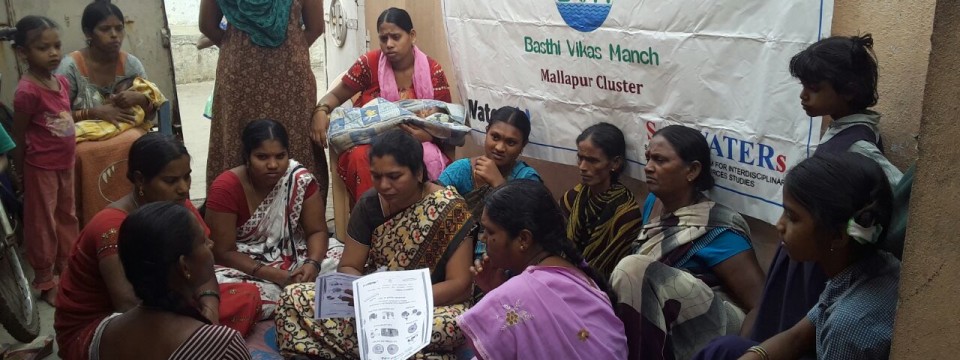Citizen's First Campaign on Accountability for Drinking water and Sanitation - Phase 3 Background
Slums or squatter settlements in the city like Hyderabad are often denied from the basic services of safe drinking water, sanitation and hygiene facilities. They are treated as illegal settlements or categorized as illegal encroachers located in the urban peripheries and are hardly considered in the city development planning. Official record says a third of Hyderabad’s population (i.e., over 20 lakh people) live in slums. According to the Greater Hyderabad Municipal Corporation (GHMC) accounting, there are 1468 slums, of which 280 are un-notified. Safe and adequate provision of water supply and sanitation infrastructure is always compromised for the marginalized urban poor result in fatal health and environmental consequences. These marginal communities of the slums are often unaware of personal hygiene practices and its impact on health. There is a general consensus that these marginalized communities are ignorant of their citizens’ rights and entitlements including government schemes and programs particularly in water, sanitation and hygiene (WASH) sector.
With this background and support from WaterAid, a program of citizen engagement campaign initiated towards the right to safe drinking water, sanitation and hygiene for the slum dwellers in the urban and peri-urban Hyderabad. The project aimed to create an organized and community led platform called ‘Basti Vikas Manch’ to voice the rights of the marginalized urban poor. The first phase of the campaign was initiated in the three clusters Rasoolpura, Bholakpura and Addagutta and Banjara Basthi. Later, the project was extended to Begumpet, Thirumalgere clusters. The project was successful in empowering marginal communities to exercise their citizen rights to ensure safe WASH service. Local and cluster level community platform was activated, built capacity and ensured enabling environment to negotiate on rights to WASH through effective networking with urban local bodies have promoted to expand the initiatives to larger urban spheres. We have phased out from these slums and currently the project is being implemented in Kapra, Nacharam, Mallapur and Meerpet clusters under the administrative control of GHMC (Kapra circle). The overall aim is to upscale the ongoing campaign of right to WASH by creating a federation of BVMs at slums, cluster and city level.



